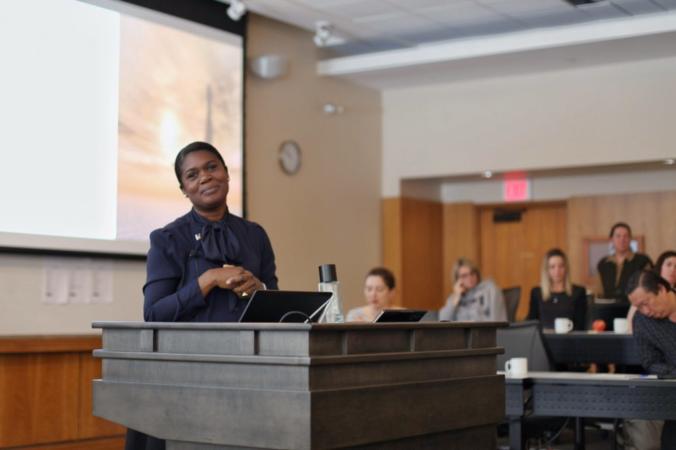The recent police killings and brutality incidents have called for another nationwide demand for better practices among police officers.
Dr. Anita Jack-Davies, an adjunct assistant professor and cross-cultural expert with over 20 years of experience in training and instruction, developed an online program that properly trains officers on race, racism, and anti-Black racism, Black News reports.
According to a press release, the program, Badges2Bridges is the “most comprehensive law enforcement education program specifically designed using input from police officers around the globe.”
The program website states that it aims to “build bridges between law enforcement and local communities” and increase the cross-cultural competence among uniformed and command staff who work in diverse communities and with under-represented groups.
“The Badges2Bridges academic format allows the training officer to ensure the material is conveniently received as well as professionally understood,” said Master Sergeant Walter “Shawn” McDaniels of the Richland County Sheriff’s Department, according to the Badges2Bridges website.
Badges2Bridges, advised by Mr. Michael Grodzinski, is being offered as a Zoom webinar and live interactive training.
“The convenience of web-based training allows the officer the benefit of utilizing the modules as a daily guide when working in the field. Modern day training within the law enforcement culture must remain aggregated in nature, thus the need to put an end to sporadic training has come. Badges2Bridges is a reliable professional development resource that is not afraid to address the tougher questions,” Sergeant McDaniels said.
Topics addressed within the program include but are not limited to: “Policing African American Communities” and “Policing African Canadian Communities,” according to a press release.
Black News reports some of the program’s benefits below:
Staff will gain confidence when working Black and other racialized communities.
Officers will be better prepared to de-escalate tense interactions based on cultural misunderstandings or miscues.
Learners will gain increased confidence with community-based policing and during home visits, traffic stops, highway stops, and other face-to-face interactions.
For more information, click here.

